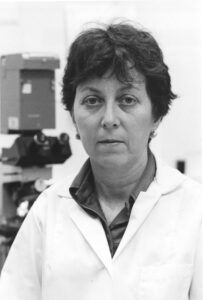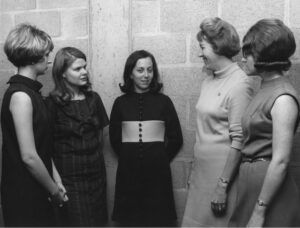On July 2, a magnificent light went dark.
The world of rheumatology lost Naomi Rothfield, MD, MACR, that day. Known for her brilliance, tenacity and patient advocacy, Dr. Rothfield, who spent nearly 50 years at the University of Connecticut School of Medicine [UConn], Farmington, has left lights burning all over the world as the multitude of rheumatologists she trained continue her legacy of excellence.
Standard Bearer
“I met Naomi in 1976 when I accepted a position at [UConn],” says longtime friend, Arthur Weinstein, MD, MACR, clinical professor of medicine at Loma Linda University, California, and clinical professor of medicine emeritus, Georgetown University, Washington, D.C. “I had been looking for a setting with a strong lupus research program, and Naomi’s focus on caring for and studying patients with lupus contributed to her already established reputation throughout New England and into New York. Lupus patients arrived from all over for either a one-time consultation or continuous care and referrals from other doctors were plentiful. In this way she built one of the largest lupus centers in the country at that time.”
After graduating from Bard College, Annandale-on-Hudson, New York, in 1950, Naomi Rothfield received her medical degree from New York University School of Medicine in 1955. Her internship was at Lenox Hill Hospital, New York, and her rheumatology fellowship was undertaken at New York University (NYU) School of Medicine. She held several teaching positions at NYU, where she eventually became assistant professor in 1964.
In 1968, Dr. Rothfield was a member of the first faculty of the University of Connecticut School of Medicine, initially serving as an associate professor in the Department of Medicine. She became a full professor in 1973; from that time until 1999, Dr. Rothfield was chief of the Division of Rheumatic Diseases. From 1978–98 she directed the National Institutes of Health (NIH)/University of Connecticut Multipurpose Arthritis Center.
“Naomi worked harder than all of us,” says Dr. Weinstein, “which was quite amazing since she was still very involved as a mother to her four children. Her intelligence, drive, inquisitiveness and focus were outstanding, and she parlayed that into obtaining continuous NIH funding to support her research and, often, that of her faculty. Also, she was very protective of her junior faculty’s time so that it was not subsumed by university committee affairs.”





